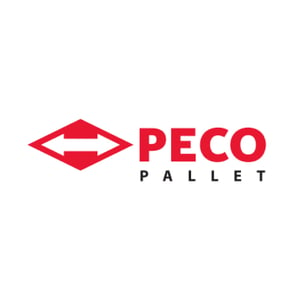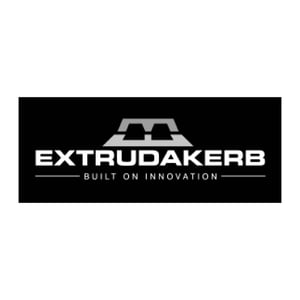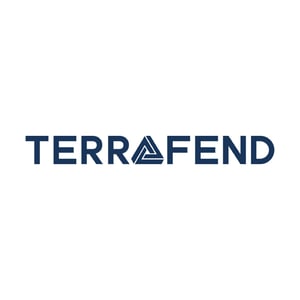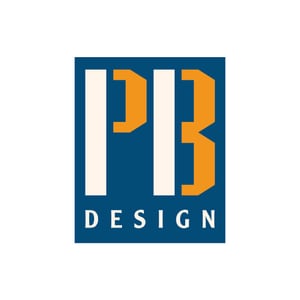
SUSTAINABILITY SOLUTIONS FOR THE TRANSPORT SECTORS
We work alongside transport and logistics organisations to help simplify sustainability across operations, not just in emissions, but also in resource use, ecological impact, and compliance with evolving sustainability targets. From fleet decarbonisation and biodiversity management at logistics hubs, to supporting circularity in infrastructure and supply chains, we offer science-led guidance that’s practical, commercially sensitive, and always tailored to your organisation’s goals. Our tailored approach enables meaningful progress in sustainability in logistics and contributes to a wider green transport strategy.
.jpg?width=100&height=62&name=Small%20Methods%20(1).jpg)



WHY TRANSPORT SUSTAINABILITY MATTERS
With increasing client expectations, public scrutiny and regulatory pressures, transport sustainability is fast becoming essential for maintaining operational resilience, securing investment, and winning tenders. But for most businesses, it’s not about radical change overnight; it involves taking realistic, measurable steps, starting with the low-hanging fruit.
That’s where we come in, helping you move forward without disrupting delivery, profitability or compliance.
Our support enables transport businesses to adopt sustainable transport solutions while remaining operationally efficient.
We help you make sense of:
- Complex emissions across fleets, depots, and third-party logistics partners: Gain visibility over Scope 1, 2, and 3 emissions and understand where the biggest impacts and opportunities lie.
- Environmental responsibilities tied to land use, biodiversity, and pollution: Navigate Biodiversity Net Gain, CSRD E4, and nature strategy with confidence.
- Sustainability reporting, regulations, and expectations from clients and investors: Meet increasing demands for transparency, compliance, and ESG disclosures with clear, credible data and strategies.


















































HOW TUNLEY SUPPORTS TRANSPORT AND LOGISTICS COMPANIES
Our services are built around the operational realities of transport and logistics, whether you run a multi-modal freight network, manage urban fleets, or operate nationwide delivery routes.
We work closely with your sustainability, operations and procurement teams to deliver meaningful progress across emissions, nature, and supply chains. Ensuring alignment with your sustainable transport solutions.
Our services include:
Showcase environmental responsibility, and gain detailed insights into your product's ecological impact.
Assessing Scope 1, 2, and 3 emissions of your business and implementing reduction strategies.
START YOUR SUSTAINABLE TRANSPORT JOURNEY TODAY
Are you unsure where to start or what your next steps are towards sustainable transport and logistics, take our 3 minute service discovery quiz to help you find the right path.
SECTOR-SPECIFIC ENVIRONMENTAL CHALLENGES
- High reliance on fossil fuels and emissions-intensive vehicles
- Land-use and biodiversity impacts at depots, ports, and logistics hubs
- Limited visibility over environmental performance in subcontracted operations
- Air, noise and water pollution affecting local communities and ecosystems
- Infrastructure and vehicle asset waste, including end-of-life treatment
- Rising demand for emissions data in logistics procurement
- Difficulty aligning low-carbon goals with tight delivery schedules
- Regulatory pressure for cleaner fleets and greener infrastructure
- Need to demonstrate progress toward wider ESG and transport sustainability targets
The project ran seamlessly from carrying out regular communication between key project stakeholders to the speed of the project execution and completion. We would highly recommend Tunley Environmental to companies looking to complete product LCAs.
Keely Warren
Brand & Communications | Tremco
Tunley Environmental have been acting as a supporting partner in research and development of Optima Products Ltd NZC strategy to reduce energy, reduce embodied carbon and improve sustainability credentials, by the assistance of technical knowledge and experience inputs on material science, energy calculations, including thermal heat loss to improve our production heat insulation design, and valued steering on electrochemical coating systems.
Gracie Stammers
Environmental & Sustainability Assistant | Optima Products Ltd
They did exactly what was asked and where we had less than perfect understanding of the issues involved their expertise showed through. The response time to follow up enquiries was excellent and I would happily use Tunley again.
Michelle Smith
Intellectual Property COntroller | Power Roll
Everything was provided as agreed and to a great standard. Very pleased with the work that Tunley Environmental undertook for us.
Adam Samuel
Director | Capchar
Tunley Environmental has been great support through our carbon assessments. Tunley completed an embodied carbon report on one of our products, we used the embodied carbon report and submitted to MAKE UK sustainability regional awards and won for our region. Great to be working with Tunley and the team and look forward to reaching our goal of net zero which I know we can with the support and expertise of the team.
Scott Commons
HSQE Manager | PB Design





APPLICABLE STANDARDS AND PRESSURES
Keeping transport moving while reaching compliance is complex, our job at Tunley Environmental is to make achieving your sustainability in logistics and broader green transport strategy easier, measurable and science-backed.
Others include: WEEE and ELV Directives: End-of-life compliance for vehicle electrification and equipment. Water Framework Regulations: Relevant for site run-off and operational water use. Biodiversity Net Gain (BNG): Required for development of depots, logistics parks and infrastructure.
.jpg?width=200&name=Standards%20and%20methodologies%20followed-%20(1).jpg)
.jpg?width=300&name=Standards%20and%20methodologies%20followed-%20(5).jpg)
.jpg?width=300&name=Standards%20and%20methodologies%20followed-%20(2).jpg)

.jpg?width=300&name=Standards%20and%20methodologies%20followed-%20(6).jpg)


PORR REDUCE EMISSIONS BY 177 T CO2E PER LINEAR KM OF TRACK
Take a look at our case study featuring PORR. In this case study we discusses their challenges, the process, what the assessment has allowed them to do and more.
PORR's effort in a Life Cycle Assessment represented a emissions reduction by 177 t CO2e per linear km of single track as part of the HS2 project.
They needed to achieve the PAS 2080 Accreditation and produce a carbon model for their product, identifying the carbon that was embedded in the product and seeking to reduce it by 50%.
WHY CHOOSE TUNLEY
With a full team of PhD-level scientists and sustainability consultants, we don’t just help you ‘tick boxes’, we work alongside your team to drive real, measurable environmental sustainability impact. From carbon footprinting and biodiversity assessments to regulatory compliance and net zero roadmaps, we’re your full-service partner for all your sustainability needs.
tailored to sector-specific regulatory and operational demands
Read More100% 5-star feedback from global clients
Read MoreEnsuring scientific robustness and solid verification
Read MoreFrom mining to engineering, construction to pharmaceutical
Read MoreIn supporting transport sustainability, respectively.
Read MoreEmbedding sustainability without disruption, working with your teams, not around them.
Read MoreFrom warehouse emissions to last-mile delivery impacts.
Read MoreOUR TEAM OF PHD-LEVEL SCIENTISTS
Our team of PhD-qualified scientists brings cross-sector expertise and technical rigour to every engagement, ensuring accuracy, credibility, and regulatory alignment. We can assist with even the most complex of assessments focused on transport sustainability.
-1.jpeg?width=300&name=Tunley%20Headshots%20(3)-1.jpeg)
-1.jpg?width=300&name=Tunley%20Headshots%20(25)-1.jpg)
.jpg?width=300&name=Tunley%20Headshots%20(14.1).jpg)
.jpg?width=300&name=Tunley%20Headshots%20(16.1).jpg)
.jpg?width=300&name=Tunley%20Headshots%20(26).jpg)

.jpg?width=300&name=Tunley%20Headshots%20(24).jpg)
.jpg?width=300&name=Tunley%20Headshots%20(13.1).jpg)



CONSTRUCTION SUSTAINABILITY SERVICES
We can help you establish targets by quantifying emissions for every phase of your project, in line with the PAS 2080 Standard. Through third-party verification, we ensure that your project is completed in accordance with PAS 2080.
View In Full DetailWLCAs are conducted to determine the most sustainable products and systems for construction and renovation projects, as well as estimating the carbon emissions of a building over its entire lifespan.
View In Full DetailOur business carbon assessments provide a comprehensive review of your organisation's carbon emissions and offer practical solutions to help you reduce your environmental impact, cut costs, and ultimately reach net zero.
View In Full DetailA comprehensive report that details the environmental impact of a product. It is essentially a product's carbon footprint calculated following standardised procedures for specific product types, known as Product Category Rules (PCR).
View In Full DetailOur comprehensive supply chain management service helps optimise procurement policies, streamline supply chain processes, and provides specialised training to suppliers.
View In Full DetailRELATED INSIGHTS
Your Comprehensive Guide to Environmental Product Declarations
The Ideal Corporate Sustainability Strategy in 2026
Embracing and Maintaining Sustainable Procurement in 2026
Tunley Environmental Achieves Gold in CSR Accreditation
What 10,000+ Visits Reveal About UN SDG support for organisations
The Role of Corporate Social Responsibility in Contemporary Business
FREQUENTLY ASKED QUESTIONS
Sustainability in logistics means reducing environmental impact across the supply chain, covering fleet emissions, warehouses, packaging and routing. It matters because clients, regulators and investors increasingly expect transport businesses to demonstrate green credentials.
A green transport strategy includes setting emissions targets (Scope 1, 2, 3), switching to low-emission vehicles, optimising routes and loads, integrating supply-chain biodiversity and resource-use measures, and embedding these into organisational operations rather than treating them as add-ons.
Sustainable transport solutions include electric or alternative-fuel vehicles, route and load optimisation software, energy-efficient warehouses and depots, supply-chain sustainability (beyond transport alone), biodiversity-positive infrastructure and clear reporting/claims.

